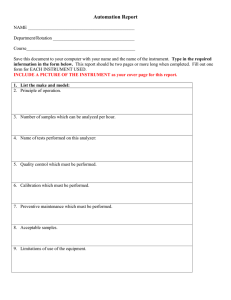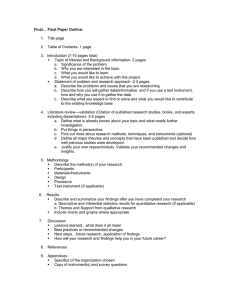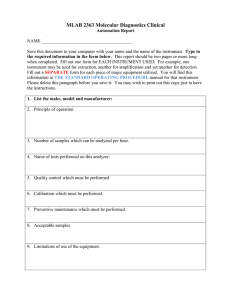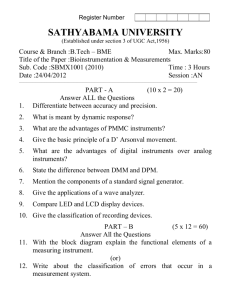Electrical Measurements Assignment: Performance & Error Analysis
advertisement
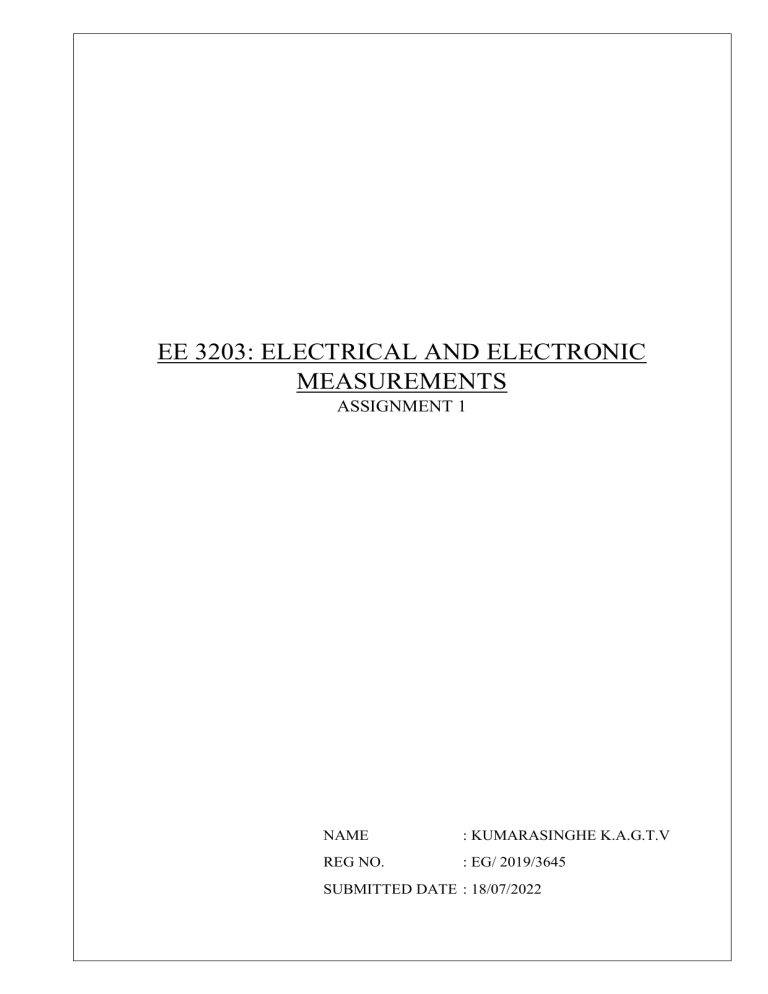
EE 3203: ELECTRICAL AND ELECTRONIC MEASUREMENTS ASSIGNMENT 1 NAME : KUMARASINGHE K.A.G.T.V REG NO. : EG/ 2019/3645 SUBMITTED DATE : 18/07/2022 Q1. I. State 5 static and dynamic performance characteristics of measuring instruments. Statics performance characteristics • Sensitivity • Dead zone • Tolerance • Stability • Accuracy Dynamic performance characteristics • Speed of response • Lag • Bandwidth • Delay time • Dynamic error Select one from both static and dynamic characteristics and explain its practical application in taking measurements. You may use figures, graphs, etc. • Sensitivity Sensitivity can be denoted the instrument response due to the smallest change in the measured variable. It is defined as the ratio of the changes in the output of an instrument to a change in the value of the quantity being measured. We have to get most efficient instrument for measurement. That mean if we going to be measured some small physical measurement, we have to get most sensitive instrument for the purpose. Otherwise, the reading may be wrong than actual values. Instrument Reading II. Sensitivity of Measurement Measured Quantity Figure 1 : Sensitivity of Measurement High sensitivity instruments may cause drifts due to thermal or other effects, and indications may be less repeatable or precise than those of lower sensitivity instruments. • Speed of response The rapidity with which an instrument or measurement system responds to changes in measured quantity is defined as speed of response. The response time it takes for an instrument or system to settle to its final steady position after receiving input. There are some measurements to get very quickly. So, we need to select highest speed response instrument to fulfil the purpose. III. Calculate the maximum percentage error in the sum of 2 voltage measurements when V1 = 100 V ± 1% and V2 = 80 V ± 5%. let the sum S for nominal case, S = = V1 + V2 180 Absolute error for V1 = = ( 0.01 x 100 ) V 1V Absolute error for V2 = = ( 0.05 x 80 ) V 4V Total Absolute error (∆𝑆𝑡𝑜𝑡𝑎𝑙 ) = = 1V+4V 5V Therefore, Maximum percentage error = = = ∆𝑆𝑡𝑜𝑡𝑎𝑙 5 𝑆 180 ∗ 100% 2.778%

